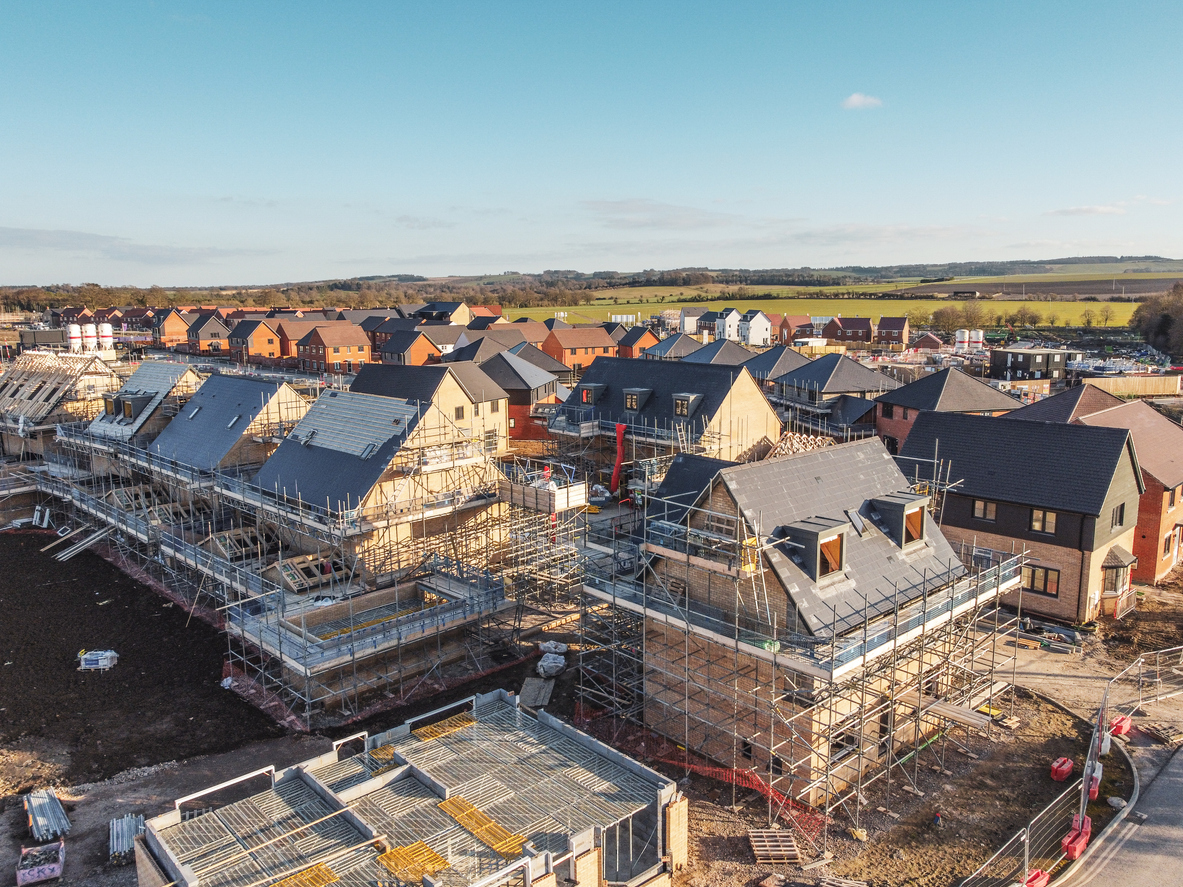In his speech to Labour party conference yesterday, Keir Starmer laid out his pitch to be prime minister. He placed the housing crisis front and centre of his speech, promising to build a “new Britain” by “bulldozing” a path through the planning system. The rhetoric was targeted, attempting to position his party as the answer to the UK’s biggest challenge.
The pressing importance of increasing housing supply is obvious to younger people. Those who missed out on the boom in house prices that started in 1997 and hasn’t stopped since, have all felt the bite of housing costs. Whether you’re in your forties and borrowed vast quantities to get the house of your dreams. Or you’re a young couple that doesn’t have enough room in your home to start a family. Or you’re a recent graduate who moved to a big city in search of a job, but now finds most of your salary consumed by the costs of your meagre flatshare.
This experience is backed by hard facts. The UK has had one of the fastest increases in house prices and renting costs in the OECD over the past forty years. Wages, in comparison, have failed to keep up with inflation for nearly twenty years. In total, the UK is estimated to be short by four million homes. Understanding the need to buck this trend will be essential if the Conservatives hope to win not just this election, but those over the next two decades.
Scratch beneath the service and Starmer’s plans may not be as ambitious as he claims. Until further proposals are put forward, I am sceptical about how and where Labour plan to build the 1.5 million homes they have now committed to. The party’s decision to block hundreds of thousands of new homes through changes to ineffective nutrient neutrality laws is not the behaviour of a party serious about tackling the backlog. Alongside this, Labour has not actually committed to amending the Town and Country Planning Act, which is at the heart of a constrained system.


Regardless, ceding this ground would be a grave mistake for Conservatives. YouGov’s latest polling put Conservative support among 25 to 49 year olds at just 15 per cent. The figure for 18-24s has hovered in the single digits, recently dropping as low as 1 per cent. Although it will not be the only factor, this clear discrepancy in Conservative support between the young and the old can in large part be attributed to the housing challenge and the wider societal problems which stem from it.
The only answer is a bolder counterproposal. As a party, we must be vocal in our commitment to build many more beautiful and high-quality homes. In particular, the focus should be on increasing urban density in and around our cities. Even London is sparsely populated compared to many great and beautiful European cities such as Rome, Paris or Barcelona.
The government has made some strong progress in this area, the new urban quarter in Cambridge announced by Michael Gove will help to unlock some of the one million homes promised for the manifesto.
But there’s much more that can and should be done. The government owns vast swathes of land which it should partner with developers to build on; urban areas should be given special status to reduce planning waiting times; individual homeowners should be given even greater freedoms to build up their own homes; and councils should be able to choose preapproved properties, which if they meet planning requirements, can be built without a lengthy planning process.
The renters reform bill, aimed at improving the conditions of renters against rogue landlords should be passed before the election, along with long-promised reforms to abolish leasehold, a feudal approach to homeownership which robs many flat owners of genuine ownership and adds to suspicion around new build properties.
The measures already announced, and those which are hopefully in the pipeline, must play a much more prominent role in Conservative messaging as we head to the election. There must be a stronger commitment to landing this message with younger people so that these voters know that the party is listening, understands the scale of the challenge, and has a plan to address it.
Backbench Conservatives who oppose housing reform at all costs must recognise the damage they do to our credibility. To retain the right to be heard, Conservatives can’t be seen to equivocate on this. Those who don’t understand the challenge risk looking out of touch.
Some worry that older voters would be deterred by promises to build more homes, and whilst short-term opposition may be a risk, it is far preferable to long-term rejection by a younger generation of voters. But I would challenge the assumptions of those who think older people would be selfish enough to look upon younger generations’ troubles with cold eyes. Recent research from Nuffield College Oxford and the Resolution Foundation has found a large proportion of older and middle-aged voters who have young people in their lives are worried about their opportunities to succeed in life.
Keir Starmer has realised that the party to be the first to unblock our overly constrained planning system will reap rewards. It is now time for Conservatives to rise to this challenge. Rishi Sunak positions himself as a politician who makes difficult decisions, and it is admirable to speak the truth to your own side in the face of opposition. To truly live up to this, he must urgently grapple with Britain’s housing challenge – the challenge of the decade.
Politics.co.uk is the UK’s leading digital-only political website, providing comprehensive coverage of UK politics. Subscribe to our daily newsletter here.

